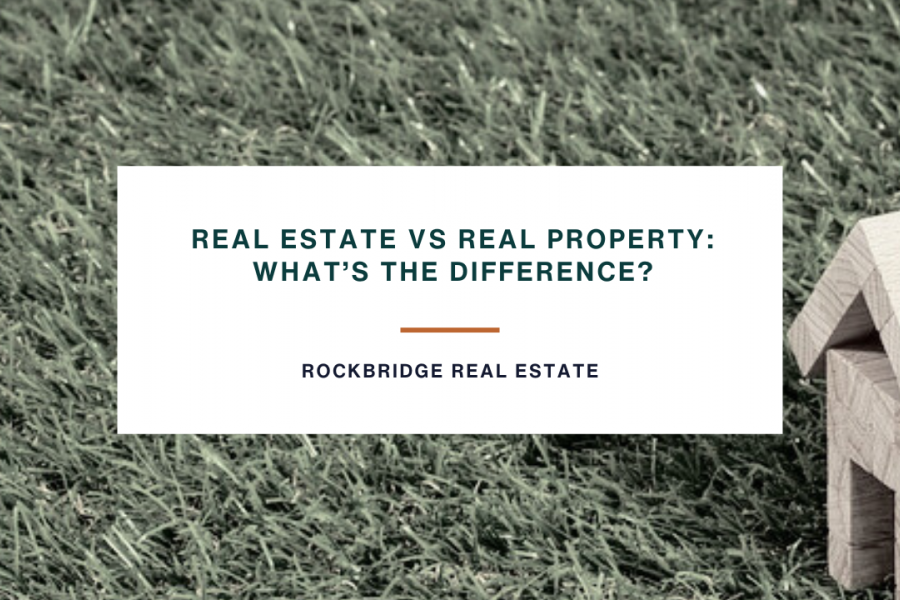
Are you a landlord wondering about the distinctions between real estate and real property? Understanding these terms is crucial as they form the foundation of your investments and responsibilities in the property market.
While they may seem interchangeable, each term carries its own legal implications and ownership rights that can significantly impact your operations and financial outcomes.
In this article, we'll clarify the differences and explore each term and help you to make more informed decisions and better manage your assets. Let’s dive into the specifics of real estate versus real property.
Exploring Real Estate Basics
Real estate encompasses the tangible aspects of property ownership, specifically the land and any permanent improvements attached to it such as buildings, homes, and other infrastructure.
Let’s delve deeper into the various types of real estate to help you identify which might align best with your investment goals.
- Residential Real Estate: Homes, apartments, and housing complexes.
- Commercial Real Estate: Office spaces, retail locations, and business-oriented facilities.
- Industrial Real Estate: Factories, warehouses, and production venues.
- Retail Real Estate: Shops, malls, and other consumer-focused spaces.
- Mixed-Use Real Estate: Developments that blend residential, commercial, and sometimes industrial elements.
- Real Estate Investment Trusts (REITs): These trusts manage portfolios of income-producing real estate, providing investors with a way to invest in property without owning it directly.
- Agricultural Real Estate: Farmland and related facilities.
- Hospitality Real Estate: Hotels, motels, and resorts.
- Healthcare Real Estate: Hospitals, clinics, and assisted living facilities.
- Vacant Land: Undeveloped land reserved for future development or investment.
- Green Real Estate: Properties designed with sustainability in mind, featuring eco-friendly construction and energy-efficient systems.
Diving into Real Property
Real property extends beyond physical assets to include the rights associated with owning land and its attachments. These rights often termed as "bundle of rights" include:

- The right to possess: The owner's right to occupy and use the property.
- The right to control: The owner controls the use of the property within the limits of the law.
- The right to enjoy: The owner can enjoy the property in any legal manner, such as cultivating land, leasing it for rental income, or inhabiting it.
- The right to exclude: The ability to keep others from entering or using the property.
- The right to dispose: Owners can transfer ownership or rights in the property to others. This can be done through selling, gifting, or bequeathing the property. It also includes the right to lease or rent the property.
Real property encompasses both the tangible aspects of real estate and the intangible rights that come with ownership. This broader scope makes real property a vital part of long-term investment strategies.
They can leverage real property for its potential to appreciate in value and generate steady rental income, though it also requires ongoing maintenance and adherence to various regulatory standards.
Comparing Real Estate and Real Property
Real estate and real property are terms often used interchangeably in everyday conversation, but they hold distinct meanings, especially in legal and investment contexts.
Key Distinctions
The core distinction between real estate and real property lies in their scope and the rights they confer:

- Tangibility: Real estate is a tangible asset, composed of the land and improvements. It's the physical substance that can be directly observed and handled.
- Rights and Interests: Real property encompasses the broader legal rights associated with owning real estate. These rights enhance the value of the physical property and define how owners can use their property within the legal framework.
Legal Implications
The difference between real estate and real property is not merely academic; it has practical legal implications, especially concerning property transactions and estate planning. For instance:
- Transactions: Buying or selling real estate typically involves transferring both the physical property and the rights associated with it. This is why real property transactions require thorough documentation and legal oversight to ensure that all rights are correctly transferred along with the physical property.
- Estate Planning: In estate planning, understanding the difference helps in effectively managing how properties are handled after the owner's death. This includes managing rights like leases, mineral rights, or air rights that might be part of the real property.
Investment Considerations
For investors and landlords, the distinction informs their strategies:
- Real Estate Investment: Focuses on acquiring physical properties to generate returns through rental income, appreciation, or by selling the properties at a higher value. This involves direct management of the property and possibly enhancing its physical aspects to increase its value.

- Real Property Investment: While it includes investing in physical real estate, it also involves managing the legal rights attached to these properties. This could mean developing a land parcel's unused mineral rights, selling the air rights to a developer, or optimizing property usage through zoning changes and legal allowances.
Conclusion
While real estate and real property might sound similar, they represent different aspects of property ownership. Real estate refers to the physical land and improvements, whereas real property includes these elements plus the associated legal rights.
Understanding these differences is crucial for making informed decisions in the property market. If managing your property's day-to-day operations and legal complexities seems overwhelming, consider partnering with a property management company.
Rockbridge Real Estate offers expert management solutions that can help you maximize your investment. Let Rockbridge Real Estate take the reins, so you can enjoy the rewards of your property with peace of mind.